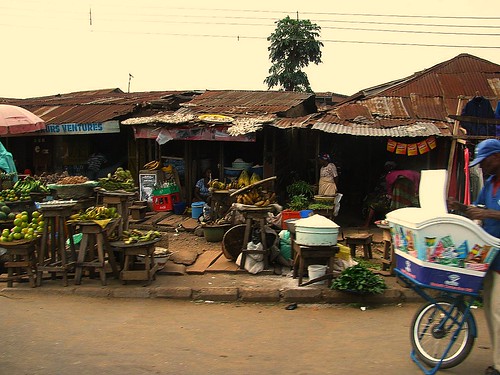I suppose it is fair to assume that most African countries were created as areas of free and unlimited economic activities, rather than unions of homogeneous people and culture. However, the founders of the Organisation of African Unity (OAU) which later became African Union (AU) seem to have focused on the unity of common struggle and history. This, in the 60s was quite understandable but as time moved on, the Union failed to catch up.
Unlike the European Union which required stringent conditions for membership, the AU was a free for all. The AU has so much to learn from the EU.
Countries continued to do more business with their former colonial masters rather than with their neighbours. This was probably an easier option as the trade links had been developed over a century and export cash crops such as cocoa, palm oil, groundnuts, and tea were booming. The outcome is that today, according to
the Economist, only 12% of Africa’s trade is with other African countries compared to 60% within Europe or Asia, and 40% in North Africa.
This was further exacerbated by the discovery of natural resources such as oil. This made it easier to exchange these resources with finished products from Europe, America and Asia. In the process, neighbours, both internal and external, were neglected. Being part of a larger union such as the AU should have been a great opportunity to look at trade requirements and how to meet them within the union. Take the following fact as an example:
Nigeria is the second largest producer of citrus in the world yet it spends $1 bn importing juice annually.
It is true that countries wanted to be self sufficient, but they failed to study the supply chain. The outcome was a situation where everyone was involved in the same economic activity such as farming without the industry to process them. With an organised economy, there would be a division of labour with countries or regions concentrating on what is more economically viable. The EU has demonstrated this approach for example when it
forced some sugar factories in the Eastern European member of Latvia because it was not economically viable to continue subsidizing them.
Apart from this clear understanding of the supply chain, there are certain obvious factors that hinder internal trade within the continent:
Travel: It is much easier and cheaper to fly to London or Paris from any African capital than to Nairobi.
Infrastructure: The glaring lack of the infrastructures that will take the economies forward.
So what can the AU learn from the EU?
We should focus on building an economic union.
---------------------




